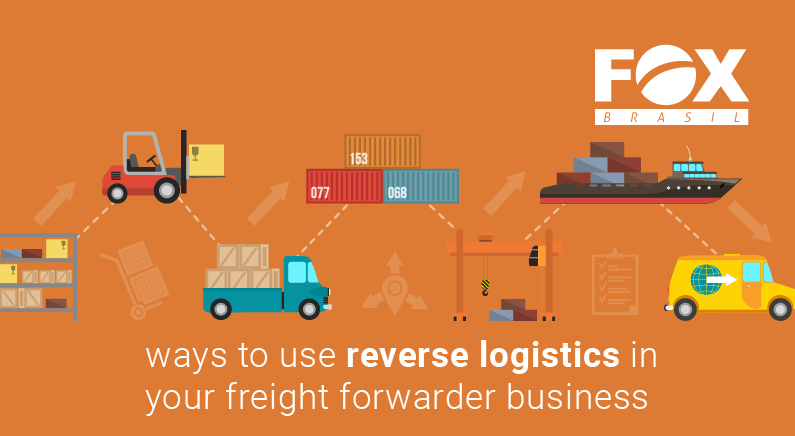How to use reverse logistics in your freight forwarding business

Understand Logistics & Freight
In today’s society, implementing sustainable strategies as part of your business’ activities is key. Besides the fact you’ll contribute to a better environment, these actions can also improve the perception that your customers have towards your brand. But what can you do for your business to take on a more sustainable approach? On this article, we’ll talk about the practice of reverse logistics.
Reverse Logistics, also known as reverse supply chain, is the logistics area focused on the return of materials that were already used in the production line, aiming to reduce waste and preserve the environment. The reverse process can be either done by recycling/reusing a business’ production materials or providing appropriate disposal for them.
If your company is able to implement a reverse logistics process in a yet profitable way, it is likely to achieve both economic and environmental sustainability, as well as stand out from competitors.
However, you might be wondering, how to apply reverse logistics as a freight forwarder? Check out some strategies below!
Applying reverse logistics as a forwarding business
As a freight forwarder, you’ll be in charge of executing your customers’ logistics operations. Therefore, it is possible for both parties to join forces and draw a reverse logistics process that not only benefits the environment but also generate a positive impact on both businesses’ performance. See some ways to accomplish this!
Encourage your customers to invest in reverse logistics
When drawing an integrated logistics strategy to meet your customers’ production/distribution needs, why not include some sustainability efforts in it? If you are able to show your customers how your freight forwarder can make their logistics processes less harmful to the environment, they will likely consider buying your idea.
Let’s explain this with an example: your freight forwarder assists a company that makes shoes. The work scope consists of taking the raw materials the company needs to their shoe production line, as well as transporting the final products to distribution centers. But how about expanding this scope to also collecting the materials used in the shoe production line and discarding them appropriately? Or even better – taking these materials to recycling centers, where they can turn into something useful for your customer? These actions can make the production more profitable to your customer, increase the range of services they hire from you and, more importantly, contribute to the environment!
Recycle as much as you can
Although a freight forwarder doesn’t necessarily produce much waste of their own, there are always some materials that could be recycled, such as worn tires, lubricant oil, packaging items, or even paperwork that is no longer needed. By implementing a recycling strategy, your company will be contributing to an alternative economy that generates new products with waste that, otherwise, would be simply discarded.
Remember: what might be rubbish for you and your business can be used by other companies, which will make other products, employ more people and, therefore, make the economy spin. On top of that, your freight forwarder business will be seen as a benchmark for both its operational and sustainable side!
Was this content useful to you? Leave a comment below and let us know your thoughts about reverse logistics and the sustainability efforts implemented by your company.
Stay tuned on FOX Brasil’s blog to access more interesting posts about the logistics and freight forwarding industries!
